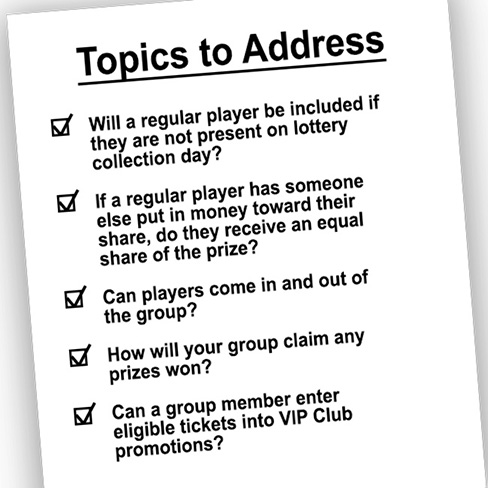
Pooling your money to play
Some of the Iowa Lottery's most memorable winners have been groups of people. It's a fun way to dream big! Here are some good practices to keep in mind when you're buying
tickets as part of a lottery pool.
Details matter
Make sure everyone in your group is at least 21 years old, the legal minimum age to buy lottery tickets in Iowa. Once your group is formed, create a list of names and contact
information for everyone in your lottery pool.
For each drawing, keep a list of everyone who takes part and how much they contributed. Once tickets are purchased, send everyone a picture of the group's tickets,
including the identifying numbers on them.
Establish official rules for the group in writing and share them with all members. We'll get you started with a handful of typical issues to consider.

Claiming a prize as a group
If your group wins a prize, you'll need to fill out an IRS Form 5754 to document that the prize is being claimed by more than one person. That form is available at lottery offices
and on our website.
The prize will actually be paid to just one person, and the group will need to decide how the winnings are divided.